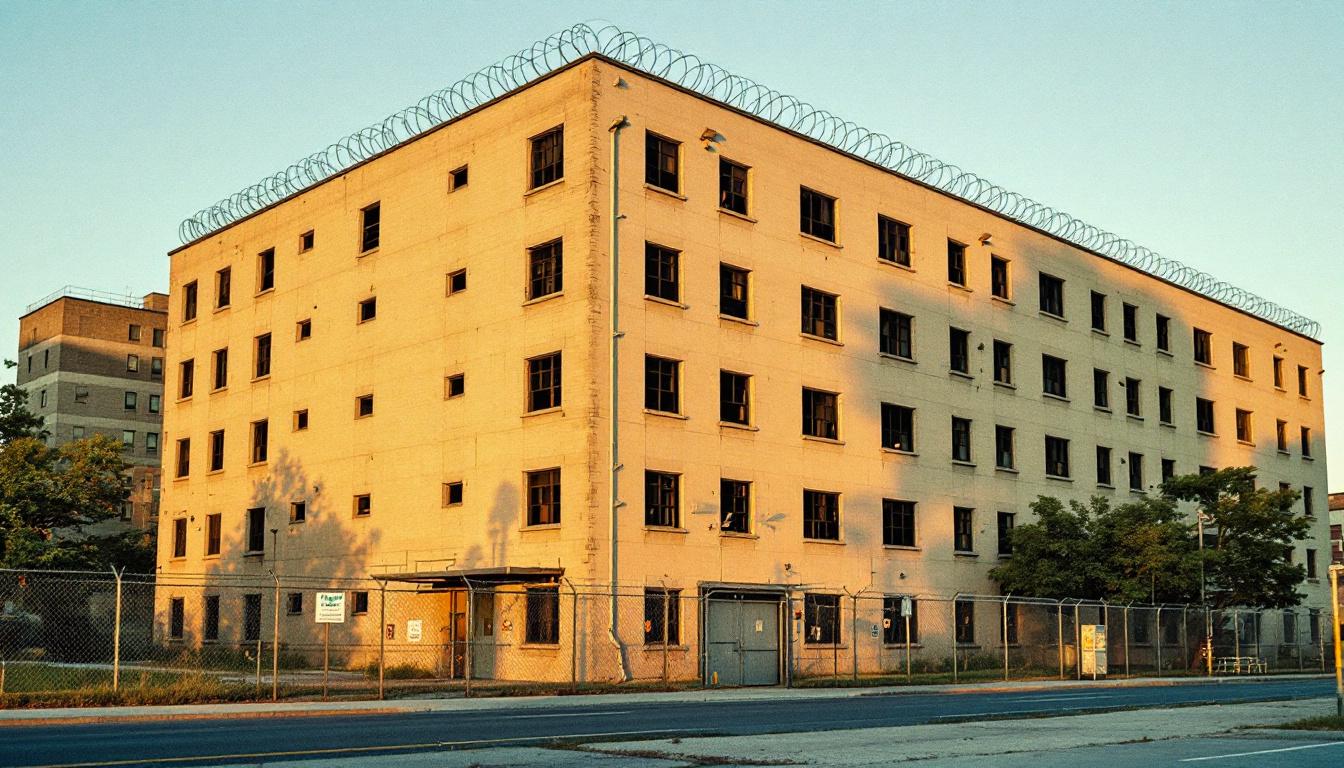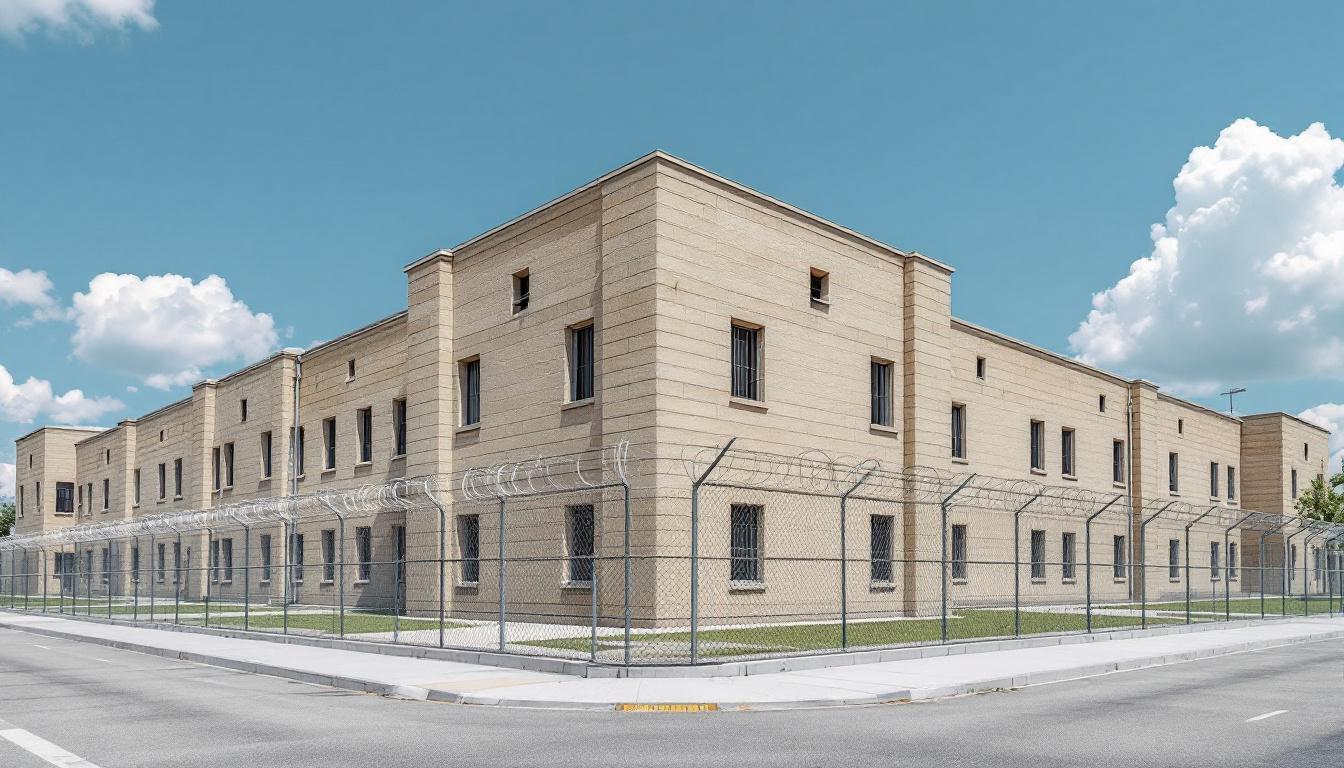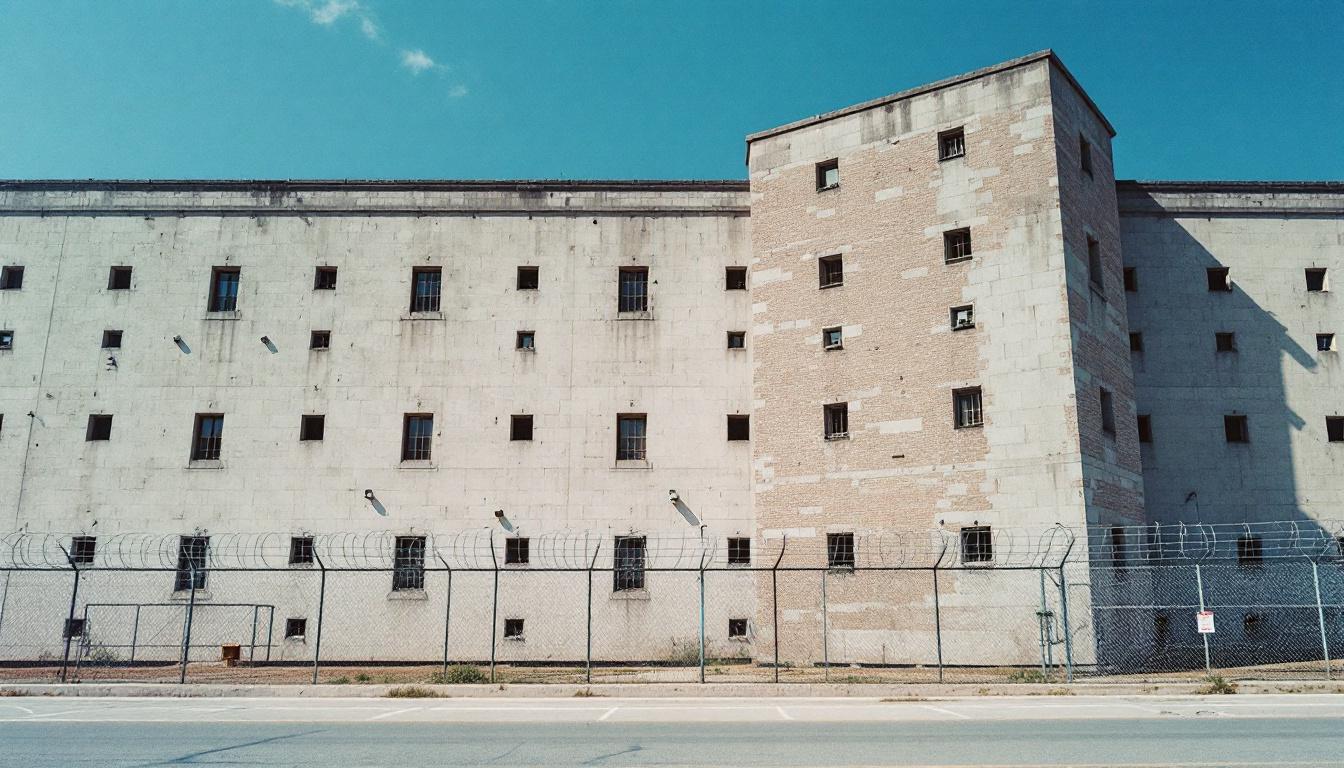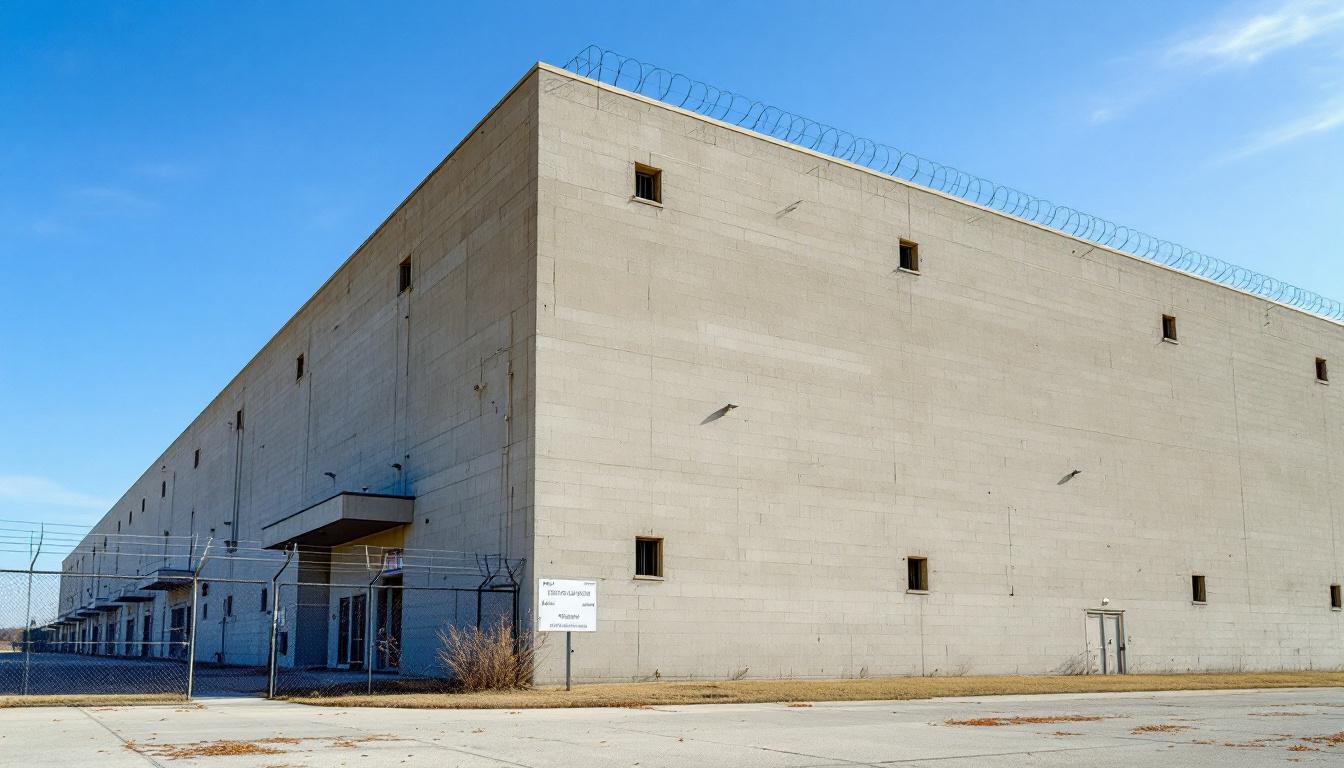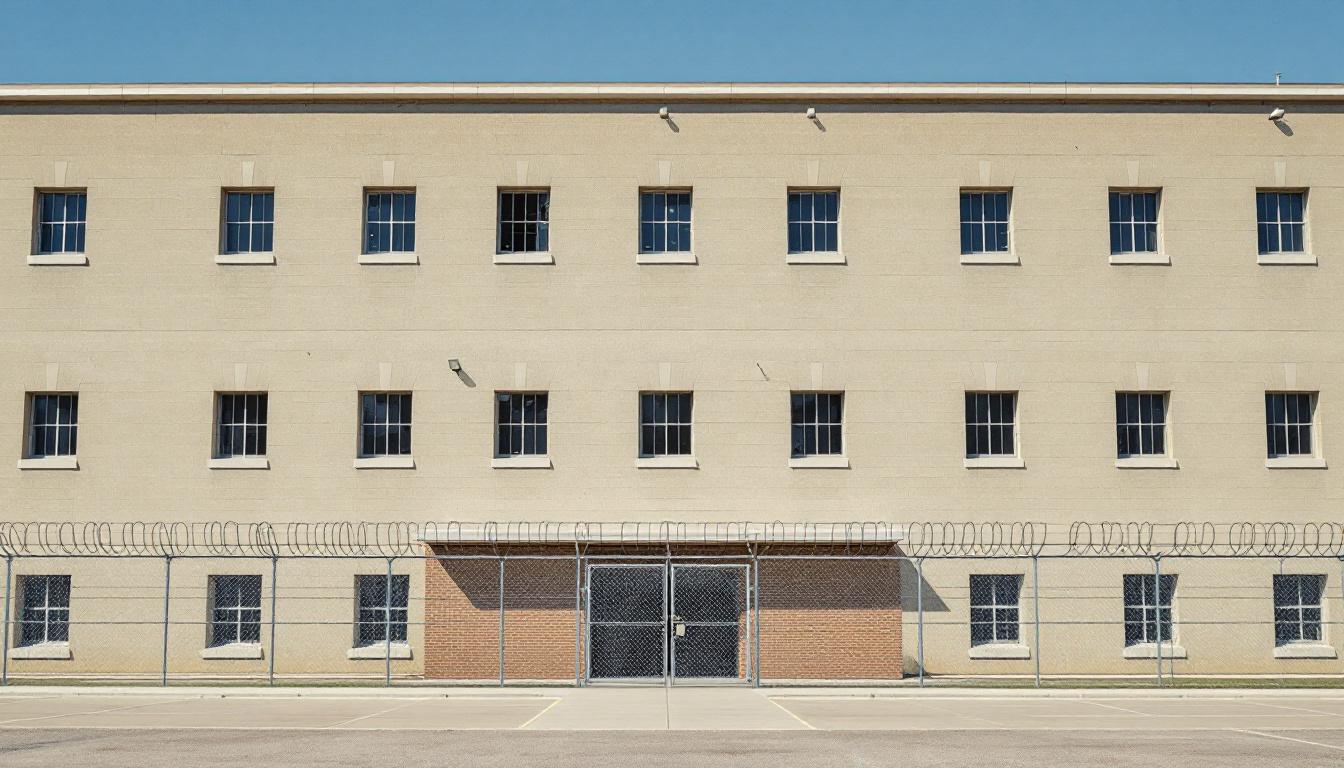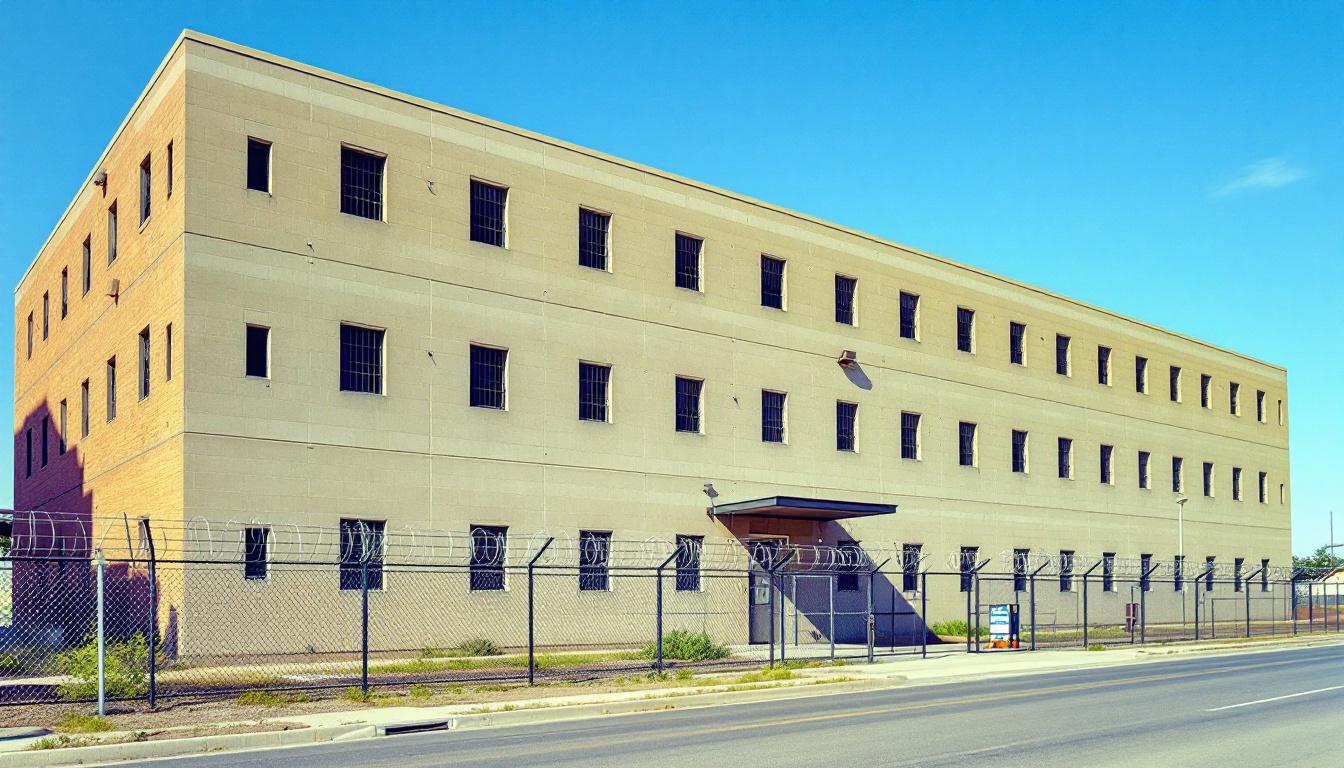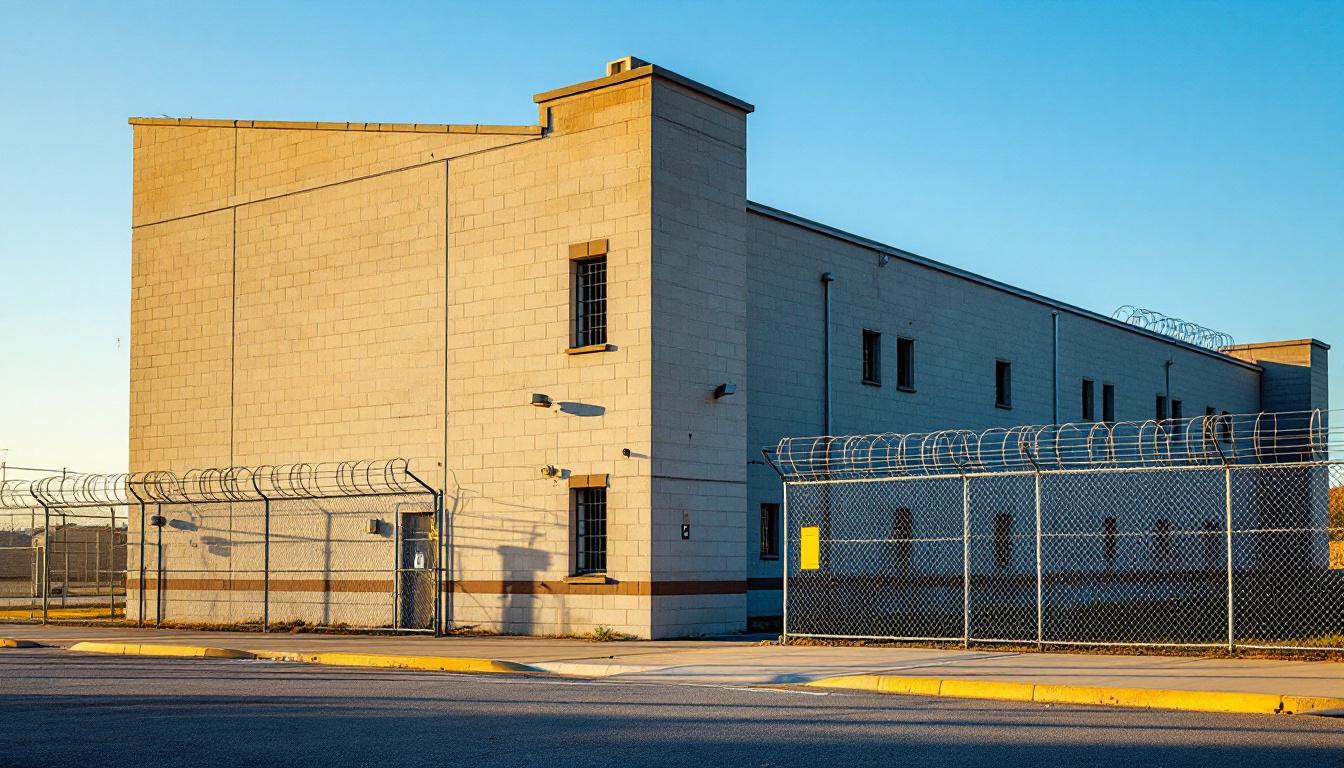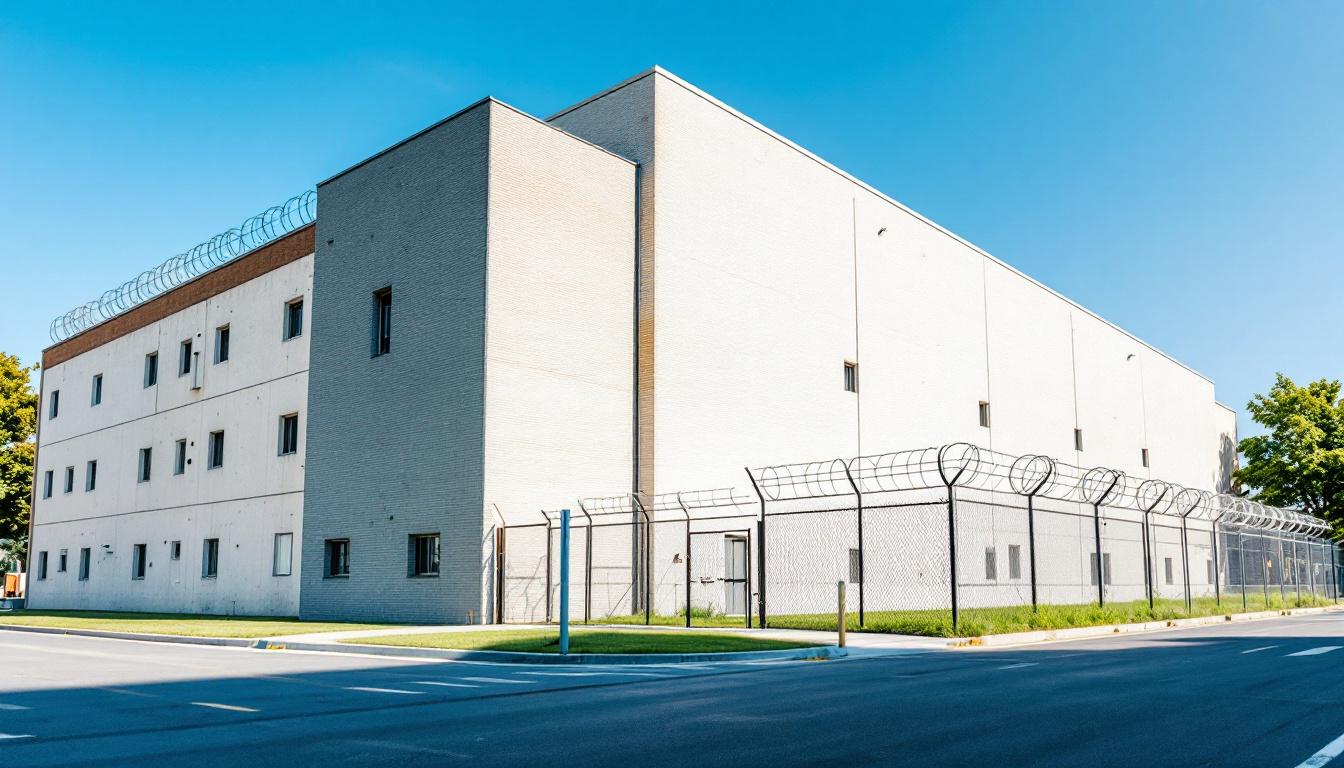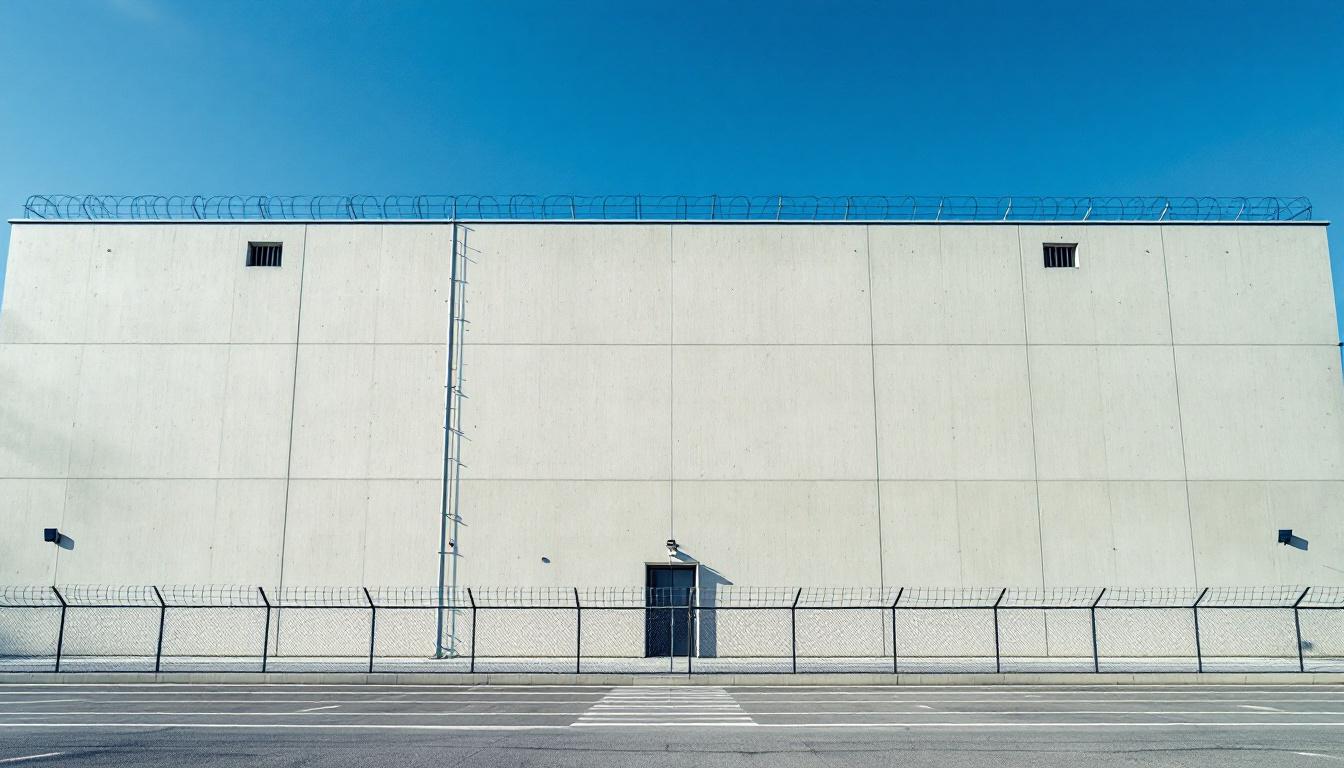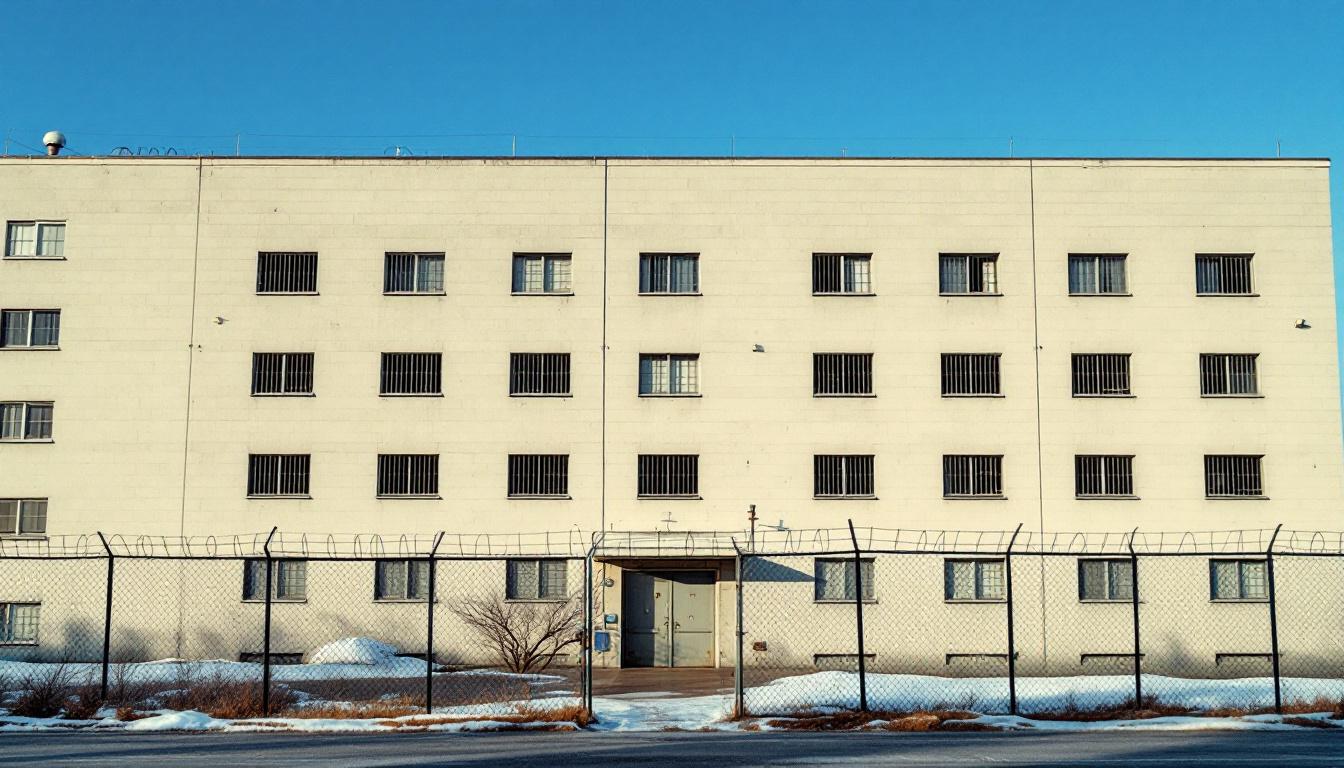
Quick Navigation
How to contact an inmate at Bryan County Jail
This comprehensive guide will walk you through how to connect with an inmate at Bryan County Jail. Follow the steps below to find an inmate and send letters and photos:
- Search for the inmate using our search tool below
- Create your account or log in to Penmate
- Write your message (up to 6,000 characters)
- Send instantly - inmates receive printed copies daily
Find an Inmate
Search for an inmate to start communicating today
Tip: You can search by first name, last name, or inmate ID number
To contact a person at Bryan County Jail start by searching for the person on the official facility website. Perform a search by following these steps:
- Step 1: Enter their first name and last name into the search form and click "Search"
- Step 2: Locate their inmate record
- Step 3: Write down their Inmate ID and any housing information provided
Important! Be sure to enter the person's full name. Nicknames should not be used.
How to Send Messages to Inmates

You can use your phone or computer to send emails, letters, and photos to an inmate. Messages are sent electronically to inmate tablets or kiosks at the facility. If you would like to send a message, start by searching for an inmate at Bryan County Jail.
Sending Photos and Postcards

A great way to send love and support to a loved one at Bryan County Jail is to send photos and postcards. It only takes a few minutes to send photos from your phone and it makes a huge difference. You can also mail postcards with words of support and inspiration, or design your own postcard for special moments like birthdays and holidays.
Important! Be sure not to send any explicit photos or they may not be approved by the facility. You can also use a photo printing app like Penmate to make sure your photos are printed at the correct size (4x6 or 3x5) and are mailed according to the rules and regulations of Bryan County Jail.
Frequently asked questions about Bryan County Jail
-
How long does it take to deliver a message?
If you're sending an email message your letter is usually delivered within 24-48 hours. For messages sent via mail you should expect delivery within 3-7 days. All messages will need be approved by Bryan County Jail.
-
How much does it cost to send a message to Bryan County Jail?
You can send a message free using your phone or mail a message via USPS for the price of a $0.60 stamp and envelope. You can also purchase credits or e-stamps from services starting at $1.99.
-
What services can I use to contact an inmate at Bryan County Jail?
Penmate
You can use Penmate to send letters and photos to an inmate from your phone. It's an easy way to stay in touch during your loved one's incarceration. Use the inmate locator to find an inmate's location and contact information, then you can send messages within a few minutes.
Securus messaging
Securus may be another option for communicating with an inmate at Bryan County Jail. You can create a friends and family account and purchase credits to send messages. All messages will be reviewed and must be approved by the facility.
JPay
Some county jails and state prisons may support sending messages with JPay. You must register an account with the system, find your loved one, and purchase stamps to send messages. For some locations you can also attach photos.
Smart Jail Mail
You may also check if Smart Jail Mail is available at Bryan County Jail. Smart Jail Mail is operated by Smart Communications and has contracted with some state and county jails. After purchasing credits, your messages and photos are sent to the facility, printed out, and then handed out to your loved one.
-
What is the mailing address of Bryan County Jail?
Mailing address:
Bryan County Jail
402 W Evergreen St
Durant, OK 74701
Phone: (580) 931-0673Business hours:
- Monday: Open 24 hours
- Tuesday: Open 24 hours
- Wednesday: Open 24 hours
- Thursday: Open 24 hours
- Friday: Open 24 hours
- Saturday: Open 24 hours
- Sunday: Open 24 hours
-
What are the visiting hours at Bryan County Jail?
Visiting hours at Bryan County Jail vary by housing unit and security level. Generally, visits are scheduled on weekends and holidays, with some facilities offering weekday visits. Contact the facility directly at (580) 931-0673 or check their website for the current visiting schedule. Visits typically last 30-60 minutes and must be scheduled in advance.
-
What items are prohibited when sending mail to Bryan County Jail?
Prohibited items typically include: cash, personal checks, stamps, stickers, glitter, glue, tape, staples, paperclips, polaroid photos, musical or blank greeting cards, hardcover books, magazines with staples, and any items containing metal or electronics. Only send letters on plain white paper with blue or black ink. Photos must be printed on regular photo paper (no Polaroids). Always check with Bryan County Jail for their specific mail policies.
-
How do I send money to an inmate at Bryan County Jail?
You can send money to an inmate at Bryan County Jail through several methods: 1) Online using JPay, Access Corrections, or the facility's approved vendor, 2) Money orders mailed directly to the facility with the inmate's name and ID number, 3) Kiosks located in the facility lobby, or 4) Over the phone using a credit or debit card. Fees vary by method, typically ranging from $2.95 to $11.95 per transaction.
-
Can I schedule a video visit with an inmate at Bryan County Jail?
Many facilities now offer video visitation as an alternative to in-person visits. At Bryan County Jail, video visits may be available through services like Penmate, Securus Video Connect, GTL, or ICSolutions. Video visits typically cost $10-20 for 20-30 minutes and must be scheduled in advance. You'll need a computer or smartphone with a camera and reliable internet connection. Contact the facility for their specific video visitation policies and approved vendors.
-
What identification do I need to visit an inmate at Bryan County Jail?
All visitors must present valid government-issued photo identification such as a driver's license, state ID, passport, or military ID. Minors must be accompanied by a parent or legal guardian who can provide the minor's birth certificate. Some facilities require visitors to be on the inmate's approved visitation list, which may require a background check. Contact Bryan County Jail for specific ID requirements and visitor approval procedures.
-
How can I find out an inmate's release date?
To find an inmate's release date at Bryan County Jail, you can: 1) Use the online inmate search tool if available, 2) Call the facility's records department, 3) Contact the inmate's case manager or counselor, or 4) Have the inmate provide this information during a call or visit. For privacy reasons, some facilities only release this information to immediate family members.
Facility Overview
Official Website
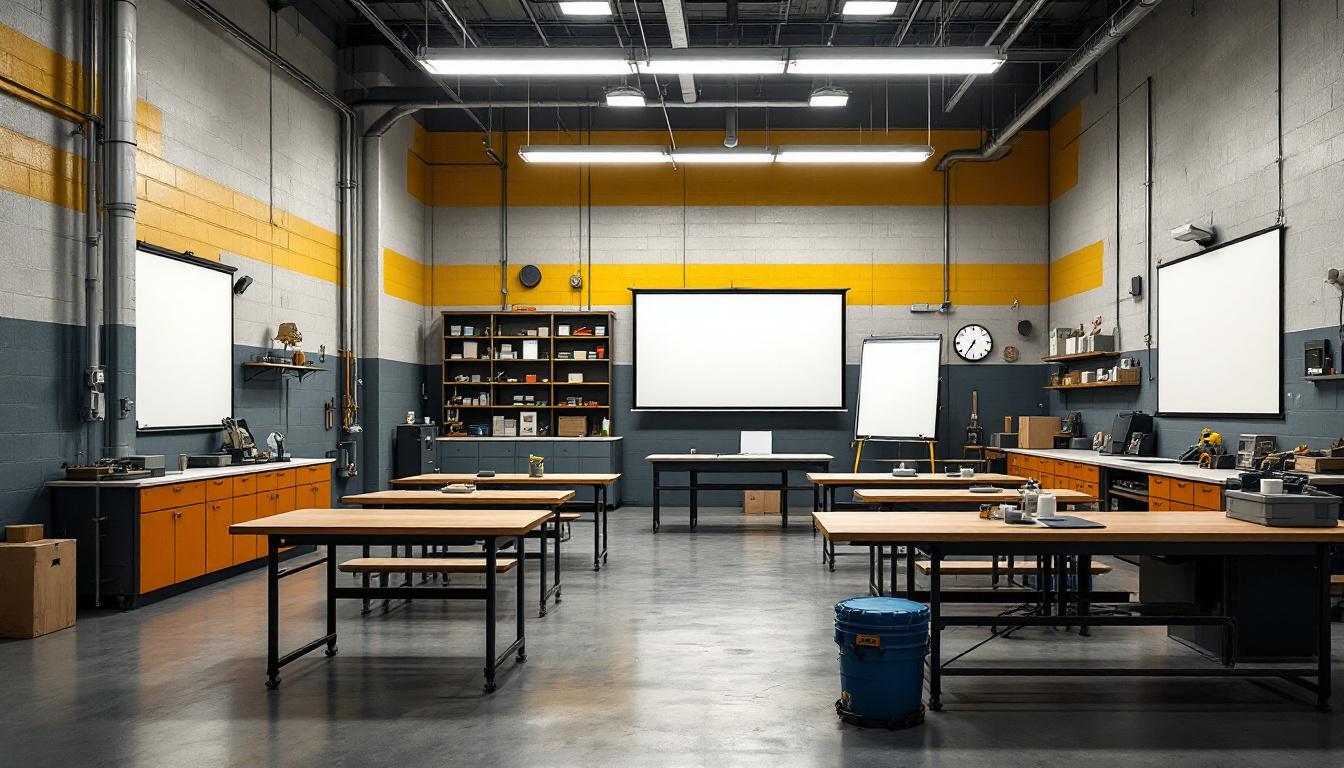
About Bryan County Jail
Community-centered rehabilitation services and comprehensive inmate support programs form the foundation of operations at Bryan County Jail, OK, where Durant's correctional approach emphasizes structured pathways toward successful reintegration. This OK correctional facility typically offers educational opportunities, substance abuse counseling, and vocational training designed to address the underlying factors that may contribute to criminal behavior. The facility generally maintains connections with local community organizations and service providers, creating a network of support that extends beyond the jail walls to help individuals develop practical skills and establish positive community ties.
Serving the Durant area and surrounding Bryan County communities, this county jail operates within Oklahoma's broader correctional framework while maintaining its distinct focus on evidence-based rehabilitation practices. The facility's approach to offender management often includes individualized case planning, mental health services, and pre-release preparation programs that help prepare individuals for their return to the community. Staff members typically work closely with inmates to identify personal goals and develop actionable plans for addressing education gaps, employment preparation, and family reunification needs.
The historical development of correctional practices in this south region facility reflects evolving understanding about effective rehabilitation strategies and community safety. Bryan County Jail may offer faith-based programming, life skills workshops, and anger management courses as part of its comprehensive approach to supporting positive behavioral change. These individuals services are generally designed to complement the facility's security operations while fostering an environment where personal growth and accountability can flourish, ultimately serving both the incarcerated population and the broader Durant community through reduced recidivism and enhanced public safety outcomes.
Programs & Services
The multifaceted approach to rehabilitation at Bryan County Jail encompasses a diverse spectrum of opportunities designed to address the varied needs of individuals within the facility. Rather than adopting a one-size-fits-all methodology, the comprehensive programming framework recognizes that meaningful change occurs through multiple pathways, each tailored to support different aspects of personal development and community reintegration. This holistic philosophy ensures that individuals may access resources spanning educational advancement, practical skill development, and therapeutic intervention throughout their time at the facility.
Educational advancement opportunities typically form the cornerstone of the facility's programming structure, with individuals often having access to basic literacy instruction, GED preparation courses, and continuing education initiatives that build foundational academic skills. Furthermore, vocational training components may provide hands-on experience in practical trades and marketable skills, enabling participants to develop competencies that translate directly into employment opportunities upon release. These educational and vocational pathways often work in tandem, creating a robust foundation for individuals seeking to transform their circumstances through knowledge acquisition and skill development.
Therapeutic interventions, including anger management sessions, address the underlying behavioral patterns that may have contributed to an individual's current situation, while faith-based programming often provides spiritual guidance and community support for those seeking meaning and direction. Furthermore, practical work opportunities such as janitorial services, landscaping, and printing operations allow individuals to contribute meaningfully to facility operations while developing workplace discipline and responsibility. This comprehensive array of support services typically creates multiple entry points for engagement, ensuring that individuals may find pathways to growth that align with their personal circumstances, interests, and rehabilitation goals.
Daily Life & Visitation
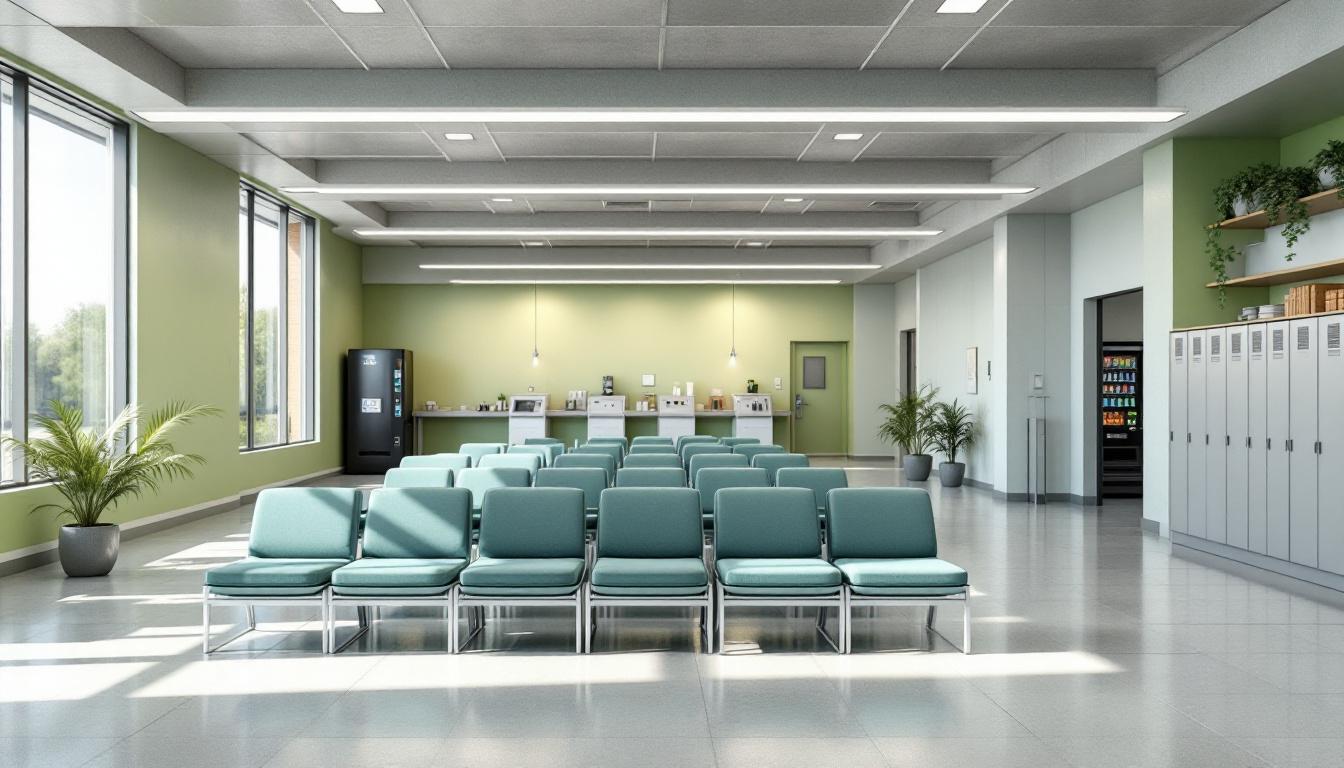
The rhythmic sound of meal trays being distributed often marks the beginning of structured activities throughout Bryan County Jail, where individuals currently adapt to a carefully regulated environment that continues to emphasize both security and basic daily needs. The facility typically operates on a predictable schedule that generally includes designated times for meals, recreation, and various programming activities, though specific routines may vary depending on housing assignments and individual circumstances. Security procedures usually involve regular counts and supervised movement between different areas of the facility, while individuals often find that maintaining personal routines within these parameters helps provide a sense of normalcy during their stay.
Living accommodations at the facility typically consist of shared housing units where individuals may be assigned based on various classification factors, with each person usually provided basic bedding, personal hygiene items, and limited storage space for approved personal property. The dining arrangements generally involve meals served in designated areas or delivered to housing units, with menus that typically aim to meet basic nutritional requirements while accommodating certain dietary restrictions when medically necessary. Furthermore, individuals often have access to commissary services where they may purchase additional food items, hygiene products, and other approved personal items, though availability usually depends on account balances maintained by family members or through facility work assignments.
Although recreational opportunities may be somewhat limited compared to larger facilities, individuals typically have access to some form of physical exercise, which often includes outdoor recreation time when weather and security conditions permit. Work assignments within the facility generally offer structure and may include food service, cleaning duties, or maintenance tasks, with participation often providing small earnings that can be applied to commissary accounts. Programming schedules may offer educational materials, religious services, or substance abuse resources, depending on available staffing and community partnerships. Family connections continue to play a vital role in daily life, with visitation policies typically allowing scheduled visits from approved family members and friends, while communication options usually include monitored phone calls and written correspondence that helps individuals maintain important relationships during their incarceration.
Ready to Connect?
Start communicating with your loved one today
Search for an Inmate
